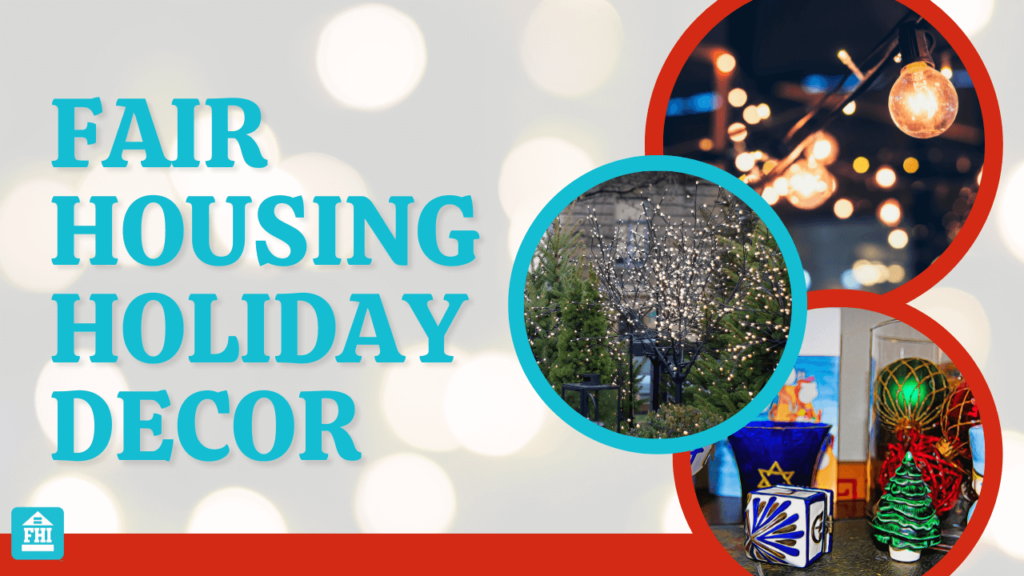The intersection of fair housing laws and holiday decorations is an essential consideration for property management professionals. As the holiday season approaches, the desire to adorn living spaces and common areas with festive decor becomes increasingly prevalent. However, it’s crucial to understand how these seasonal adornments can sometimes raise issues related to fair housing laws. In this article, we will explore the delicate balance between decorating for the holidays and adhering to fair housing regulations. We’ll delve into the legal aspects, guidelines, and best practices for ensuring that residents can enjoy their holiday traditions while maintaining an inclusive and non-discriminatory living environment.
Estimated reading time: 3 minutes

Table of contents
Does the use of holiday decorations have fair housing implications?
Yes, decorations can have fair housing implications as the protected category of religion comes into play. We are not talking about all holidays, such as Thanksgiving or the Fourth of July, but instead, we are focusing on holidays that carry a religious element, like Christmas, Hanukkah, and other similar celebrations. Decorating for these holidays can have an impact on residents, guests, and pretty much anyone who is on your property.
What should a housing provider be aware of when decorating for the holidays?
While it can be a lot of fun for residents and staff alike to get into the holiday spirit by decorating, there are a few things that need to be considered. Decorations generally fall under two categories: secular and religious. Secular refers to decorations that do not carry any significant religious implications. According to HUD, this can refer to items like Christmas trees, wreaths, or items that say Merry Christmas. When we cross over to religious-based items like crosses, nativity scenes, or the Star of David, these are best avoided. However, if you are going to allow them, a best and almost necessary practice would be to decorate for multiple religions to avoid the appearance of favoritism of one over another.
If you allow residents to decorate your common areas or their doors, what types of issues could result?
The very first issue that can arise with common areas is to get everyone to agree. Be it the residents agreeing with each other, but even more importantly, the residents agreeing with management. In order to avoid misunderstandings, clear-cut guidelines will be needed to ensure that fair housing compliance is maintained.
Regarding residents’ personal property like doors or patios, your policies will dictate what is and isn’t allowed. For example, if your property’s policy is that no one is allowed to decorate their doors or outdoor spaces year-round, well, then the problem is solved. If you do allow residents to decorate their property, then you can only stop them from displaying any decorations that are deemed offensive.
Can you have a rule that prohibits residents from decorating common areas?
The short answer is definitely yes! These areas fall under the property’s control and, therefore, its policies.
As property management professionals, we must recognize the significance of harmonizing holiday celebrations with fair housing laws. By adhering to these principles, we can strike a balance that allows residents to express their holiday spirit while upholding the values of equality and inclusivity. As the holiday season approaches, let us remain vigilant in our commitment to creating welcoming and discrimination-free living spaces where everyone can enjoy their traditions and festivities with peace of mind. In doing so, we not only comply with the law but also contribute to building stronger and more harmonious communities.
You May Also Like:
